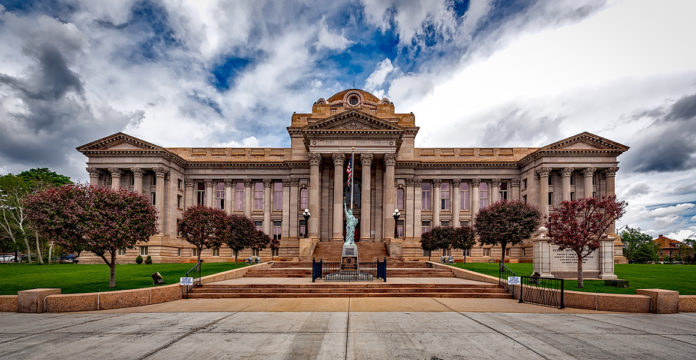Air Commission Action a Real Turkey
One week before Thanksgiving, the Air Quality Control Commission overruled recommendations by its staff and ordered early closure of several coal-fired power plants. Notwithstanding staff modeling that showed previously agreed-upon closure dates in 2029 and 2030 would meet the requirements of the Regional Haze rule, Commission accepted an alternative proposal to close those plants even earlier, in 2028. The alternative plan offered by the Sierra Club and the National Parks Conservation Association also recommended that Units 1 and 2 at Hayden be closed in 2028 (despite lacking detailed analysis), significantly accelerating closures by two years for Unit #1 and eight years in the case of Unit #2. Also recommended for closure in 2028 were Nixon Unit 1 in Colorado Springs and Rawhide in Larimer county. The Commission will take final action on the alternative plan at its December 16 meeting.
Special Session Here and Gone
The Governor’s call for an Extraordinary session of the General Assembly convened on November 30 and adjourned sine die December 2 in the early afternoon. The Governor had set out an agenda to provide financial relief to individuals and businesses most impacted by the COVID-19 shutdowns, outlining seven areas where he wanted to direct the money. Approximately $342 million in relief was approved for specific financial assistance including small businesses, restaurants, bars, gyms, and arts/cultural venues and performing artists as well as funding for housing and energy assistance to individuals. Many of these programs had already been included in the proposed budget submitted on November 2, but in the absence of additional federal money coming in the state spending was accelerated. The money comes from lower than anticipated expenditures earlier in the year and better than anticipated revenue. Nevertheless, JBC Chair Dominic Moreno has estimated the true need to see Colorado through the pandemic is likely in the tens of billions of dollars, not the millions the state made available. The next revenue forecast will be issued December 18.
Thirty-eight bills were introduced; of those, only ten were passed. Seven bills that would have limited the Governor’s authority to issue orders in an emergency such as the pandemic were quickly disposed of in committee hearings on a party line vote, as were bills to address the financial impact on families whose children are not physically attending school. Likewise, most amendments offered by Republicans were also voted down. The bills that did pass had bipartisan sponsorship and were negotiated with House and Senate leadership before the session began, although some were significantly amended in the process. Just as in the bifurcated session last spring, mask-wearing was a point of contention and an unnecessary distraction where about one quarter of the legislature and many staff worked and participated in voting via internet. Of significance, rules were adopted that allowed members of the public to also testify via internet through their own computer rather than traveling to the Capitol or to a centralized location providing remote services. This procedural concession is available, under the new rules, only during a declared public health emergency and is written specifically to address the Extraordinary Session but may be modified for use throughout the 2021 session which is scheduled to convene January 13. The use of the streaming technology may make it easier to avoid the start and stop experienced in the 2020 session, or the situation such as in Wyoming which has decided to delay convening its 2021 session until later in the spring, citing health concerns for its legislators who tend to be in a high-risk demographic for COVID-19 complications.
CDPHE’s decision whether to propose legislation to establish a state dredge and fill permit program remains in limbo as the state awaits a decision on continuation of the stay prohibiting application of the new federal rule establishing more limited scope of the Clean Water Act. Oral argument regarding the stay was held before the Tenth Circuit Court of Appeals on November 18 in State of Colorado v. EPA, case number 20-1238.
On November 18, CMA offered public comment at the Colorado Board of Health rulemaking hearing to adopt regulations to provide a framework for TENORM management. Details of the regulations will be expressed through Guidance under development by the Radiation Control Division over the coming months. The focus to date has been on wastes from oil and gas development and processing as well as water and wastewater treatment. Impact of the regulations on mining remains unclear.
CMA awaits release by the Division of Reclamation, Mining and Safety of a red-line draft of proposed regulations covering implementation of HB 17-1113 (water quality standards upon closure of hardrock mines) and Temporary Cessation. Following circulation of the draft proposed rule, the division will commence stakeholder meetings prior to publication of proposed rules for the hearing which is expected to occur in March.








